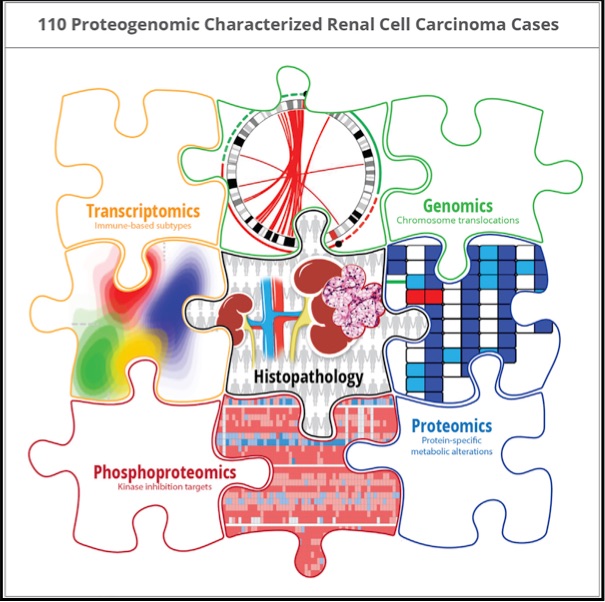Jurisdiction:
United States
Organ System:
Kidney
Funding Organization:
- National Cancer Institute, USA
Research Organizations:
- Johns Hopkins University, USA
- University of Michigan, USA
- Icahn School of Medicine at Mount Sinai, USA
- Baylor College of Medicine, USA
- Washington University in St. Louis, USA
- New York University School of Medicine, USA
- Brigham Young University, USA
- National Cancer Institute, USA
Principal Investigators
:- Hui Zhang
- Pei Wang
- Alexey I. Nesvizhskii
Publication:
External Links:
The National Cancer Institute’s Clinical Proteomic Tumor Analysis Consortium (CPTAC) is a national effort to accelerate the understanding of the molecular basis of cancer through the application of large-scale proteome and genome analysis, or proteogenomics. Through a coordinated effort by CPTAC-affiliated Proteome Characterization Centers, Proteogenomic Translational Research Centers, and Proteogenomic Data Analysis Centers, CPTAC aims to comprehensively characterize human cancers.
To elucidate the deregulated functional modules that drive clear cell renal cell carcinoma (ccRCC), we performed comprehensive genomic, epigenomic, transcriptomic, proteomic, and phosphoproteomic characterization of treatment-naive ccRCC and paired normal adjacent tissue samples. Genomic analyses identified a distinct molecular subgroup associated with genomic instability. Integration of proteogenomic measurements uniquely identified protein dysregulation of cellular mechanisms impacted by genomic alterations, including oxidative phosphorylation-related metabolism, protein translation processes, and phospho-signaling modules. To assess the degree of immune infiltration in individual tumors, we identified microenvironment cell signatures that delineated four immune-based ccRCC subtypes characterized by distinct cellular pathways. This study reports a large-scale proteogenomic analysis of ccRCC to discern the functional impact of genomic alterations and provides evidence for rational treatment selection stemming from ccRCC pathobiology.

